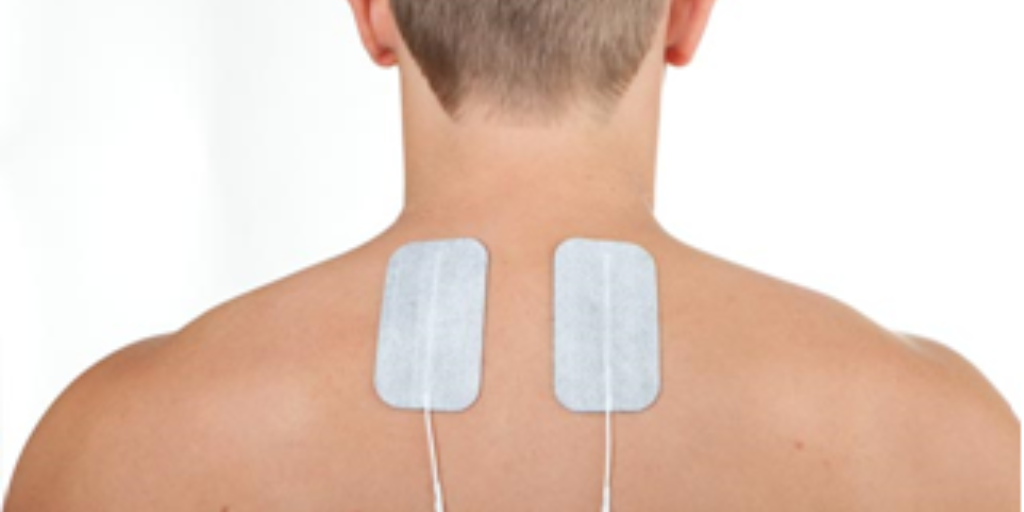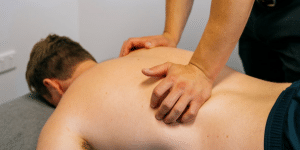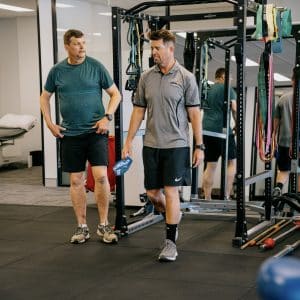Electrotherapy – Does it work?

We can’t guarantee an injury solution for every single person who walks through the door – no one can – but we do guarantee to only recommend a treatment intervention with some evidence to back it up.
Recently we’ve had a run of patients who have had unsuccessful outcomes elsewhere with treatments that have been shown time and again to be ineffective and a waste of money. That got us upset enough to write this blog / rant on your behalf – it’s your health and your money changing hands.
There is a long list of ‘electrophysical agents’ but we’ll limit this article to four of the main offenders: TENS, Interferential Therapy, Scenar and Laser Therapy.
Firstly, let’s explain what each of these tools are and how they ‘work’ (some work better than others).
TENS
TENS stands for transcutaneous electrical nerve stimulation and involves electric pulses being sent through the skin via two electrode pads from a machine about the size of a pack of cards. TENS applies a tingling sensation and does provide temporary relief of pain through the ‘gate control’ theory, which says that sensory nerve input will override pain nerve input at a spinal cord level. It’s the same reason you instinctively rub your knee just after you bang it on the coffee table. So it works for a short period and some people do find it helpful – but given TENS machines are easily obtainable for well under $100, TENS should never be the main element of a treatment session. Finally, by temporarily blocking a pain input, TENS doesn’t address the underlying issue of what is causing the pain.

Interferential (IF)
Interferential is again, low-frequency electrical impulses transmitted to the skin via 4 electrodes. The method of effect is similar to TENS but IF apparently targets ‘deeper’ tissues. While IF can provide temporary pain relief, similar to TENS, there are no high-quality studies demonstrating any long term benefit from its use.

Scenar Therapy
A newer SCENAR is an acronym for Self – Controlled – Energo – Neuro – Adaptive Regulator. I will leave the reader to
decide if that sounds like technical mumbo-jumbo, but it’s another device (handheld this time) that applies electric current to the body. It purports to “communicate with all functions of the body through the skin, tuning the body’s inner communication and understanding the body’s needs from the signals being sent back and forth. SCENAR responds to these signals accordingly with gentle impulses that communicate with the nervous system to stimulate the body’s healing process so your body can operate at maximum efficiency”. Again, I invite you to draw your own conclusions.

To cut to the chase, there is no research that compares scenar to placebo, and no high quality evidence backing claims that it helps everything from sprains and strains to fractures and fatigue.
Low Level Laser Therapy (LLLT)
Low level laser therapy involves exposing the body part to low level lasers or light emitting diodes. The supposed
method of effect is unclear. Low level laser is not to be confused with higher powered lasers which are used in laser medicine to cut or destroy tissue. Systematic reviews of LLLT have shown no benefit of real vs sham (switched-off) LLLT.

Summary
The power of marketing is not to be underestimated and these machines claim a lot but do not have high quality evidence to back it up. There is a great paucity of research to support any of their claims and they all tend to be no more effective than placebos for musculoskeletal injuries. If you’re still wondering then ask yourself – if these machines were really as great as they are made out to be, why aren’t they next to every hospital bed across the country. As taxpayers, we’d save hundreds of millions of dollars every year if the claims were true. The simple reason is that the manufacturers claims just don’t stack up.
So, what should you be receiving instead? Obviously, interventions that have some evidence behind them. Hands on therapy, therapeutic exercise, education and advice from qualified and experienced practitioners. Simple and effective. No need to waste money and time on fancy adjuncts that won’t help you.
For more information, please contact us here or book an online appointment






